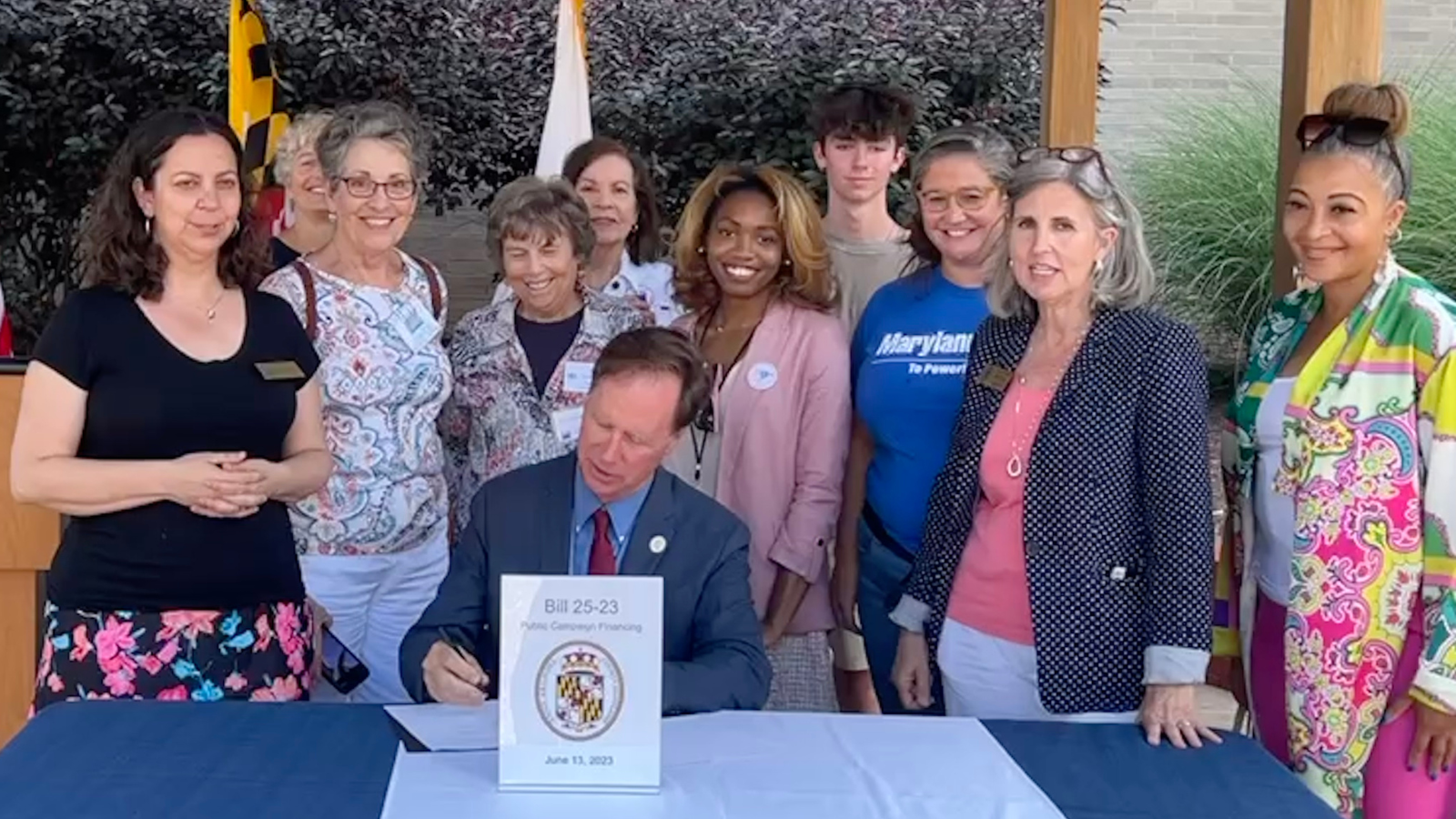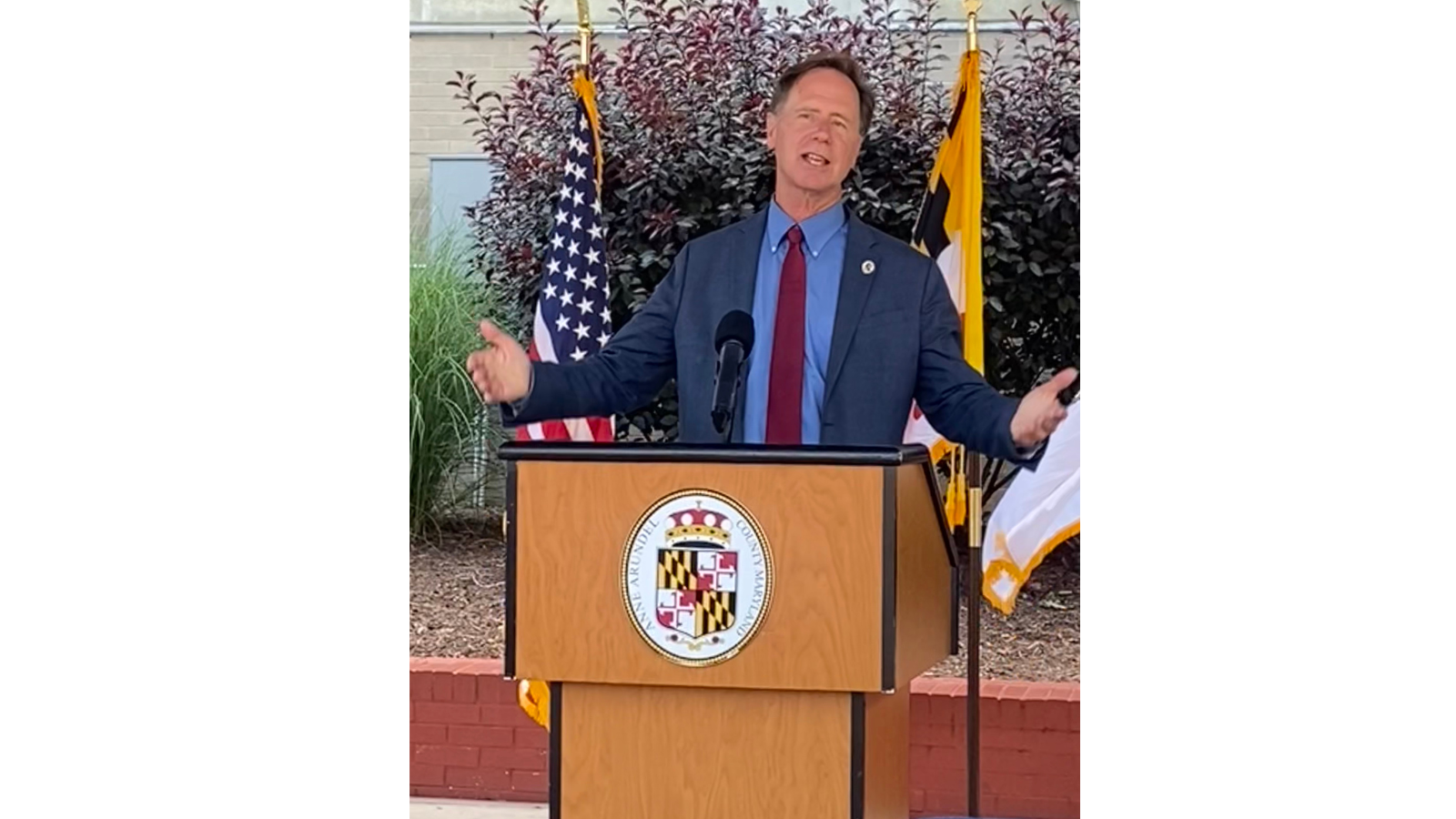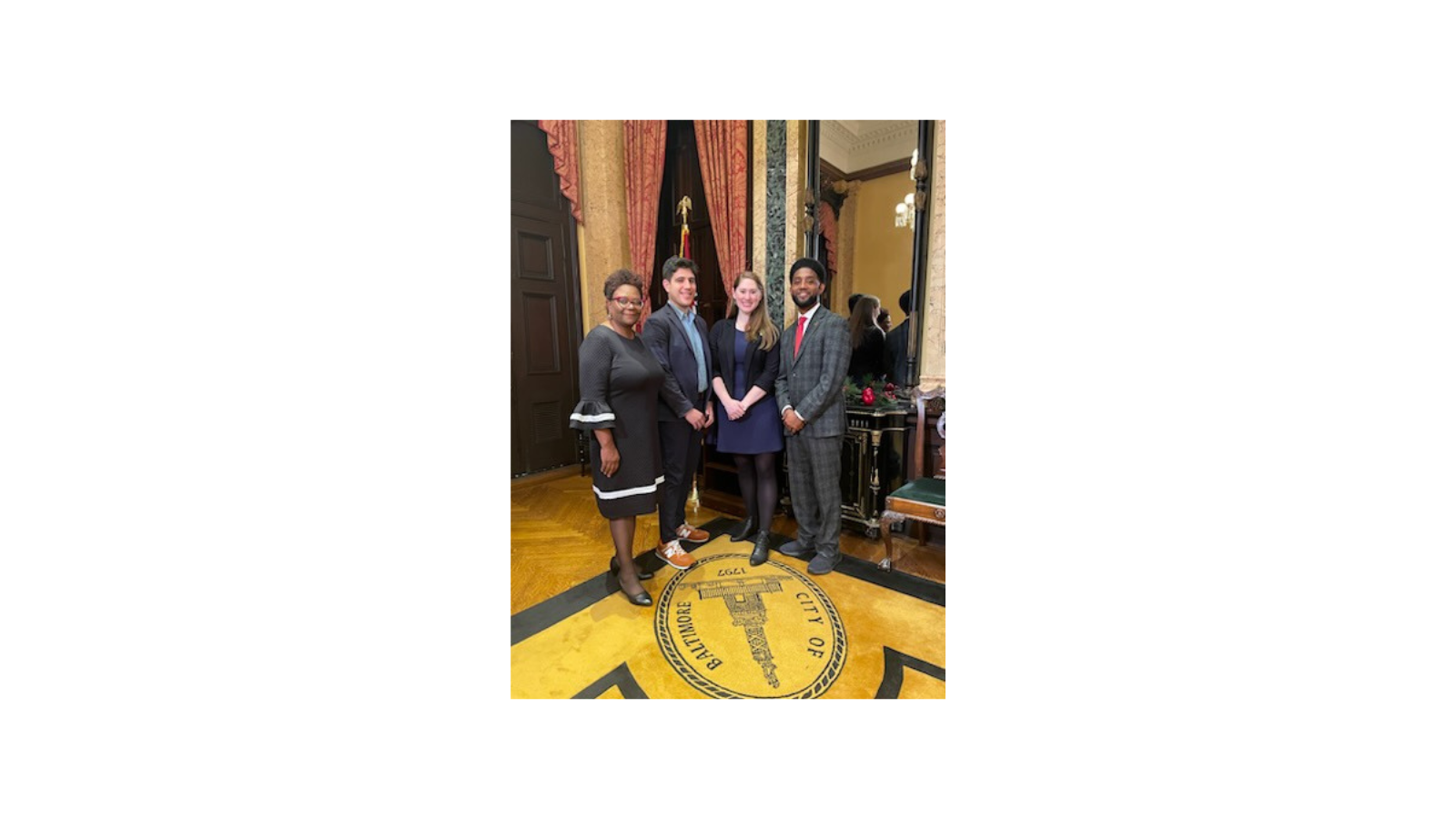
Small donor public financing victory in Anne Arundel County
Anne Arundel County Executive Steuart Pittman was joined by activists, advocates, and County Councilmembers to sign small donor public financing into law.

Anne Arundel County Executive Steuart Pittman signed small donor public financing into law on Tuesday, becoming the 6th community in the state to establish this new way to fund elections, and making it more evident that the state should consider small donor public financing for state legislative races.
In 2013, the Maryland General Assembly passed the Campaign Finance Reform Act of 2013 which made it possible for Maryland counties and Baltimore City to build small donor campaign finance programs locally. Since, Montgomery County, Howard County, Prince George’s County, Baltimore City, and Baltimore County have all established these new campaign finance systems, and Montgomery County and Howard County have successfully run elections using the new system.
As a leader of the Fair Elections Maryland Coalition, Maryland PIRG has been there every step along the way, working with local leaders and activists, and partners like Common Cause Maryland, local chapters of the League of Women Voters and the NAACP to educate and advocate for the programs.
These programs are popular, effective, and bipartisan. Larry Hogan used the state’s public financing program in his successful run for Governor; Republican candidate for Howard County Executive Allan Kittlemen used the program in his 2022 run in Howard County; and, Baltimore County’s fair elections program passed with bipartisan support.
Today was a good day in Anne Arundel County. Cheers to the advocates, activists, elected officials and their staff for years working to make the County the 6th in the state to establish small donor public financing! #FightBigMoney pic.twitter.com/VX3hpDunie
— Maryland PIRG (@MarylandPIRG) June 13, 2023
This bill creates a voluntary program which enables candidates to run for office with small donations from their constituents and remaining competitive with those who accept large and corporate contributions. This serves the dual purpose of reducing corporate and large donor campaign spending and re-engaging the community in the electoral process. And with a Fair Election program in place, we hope to expand opportunities to run for office, so candidates of all backgrounds can run based on the strength of their ideas, not access to money.
Here’s how it would work:
- Candidates seek contributions from the people they would represent in office, and the size the average person can afford to make, with contributions maxed out at $250.
- Once they have reached qualifying thresholds for money raised and donors reached to prove viability, the County provides matching funds to boost those small contributions. This helps ensure these candidates can remain competitive with those taking big checks. This system keeps big money out and encourages candidates to seek small donations from everyday people.
- Participating candidates have to reject all large and corporate contributions and only accept small contributions to their campaign.
- Once they qualify, they will receive limited matching funds for the small contributions from County residents, with the smallest donations receiving the highest match.
- This encourages candidates to focus their campaigns on city residents of all income levels and enables them to remain competitive with candidates not participating in the program.

In 2019, Maryland PIRG Foundation released a report which found that Montgomery County’s Fair Elections program showed strong results in its first use. The report looks at data from 57 candidates for county office, 35 of whom participated in the program and 24 qualified to receive matching funds.
Key findings:
- Candidates who qualified received nearly twice as many donations from Montgomery County residents than those not participating in the program (850 vs 434).
- Candidates participating in the program received an average contribution of $86 compared to $1,145 for non participating candidates.
- Candidates running for county council seats were able to use the small donor system to run competitive races. The average contribution, including matching funds, for candidates participating in the program was similar to the average contribution for candidates accepting large contributions ($306 vs $292).
A Fair Elections program will be better for candidates and elected officials, better for the public, and better for Maryland. We applaud Anne Arundel County for taking this step towards a stronger democracy.

Donate Today
We're standing up to powerful interests, but we need your support to make it possible.
Topics
Authors
Emily Scarr
State Director, Maryland PIRG; Director, Stop Toxic PFAS Campaign, PIRG
Emily directs strategy, organizational development, research, communications and legislative advocacy for Maryland PIRG. Emily has helped win small donor public financing in Baltimore City, Baltimore County, Howard County, Montgomery County, and Prince George's County. She has played a key role in establishing new state laws to to protect public health by restricting the use of antibiotics on Maryland farms, require testing for lead in school drinking water and restrict the use of toxic flame retardant and PFAS chemicals. Emily also serves on the Executive Committees of the Maryland Fair Elections Coalition and the Maryland Campaign to Keep Antibiotics Working. Emily lives in Baltimore City with her husband, kids, and dog.
Find Out More

Anne Arundel County Considers Small Donor Public Financing

Mayor Scott swears in Fair Election Fund Commissioners

How to Vote in the 2022 Maryland Primary Elections
